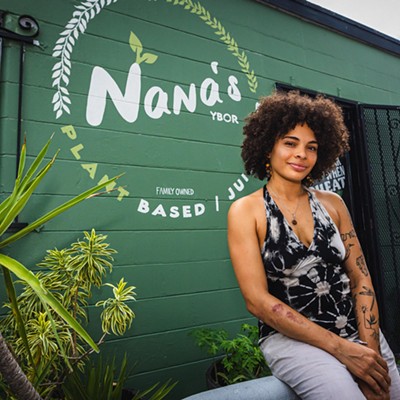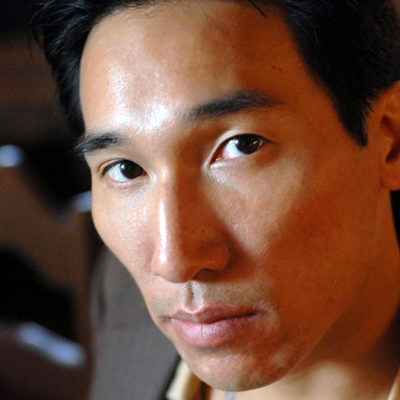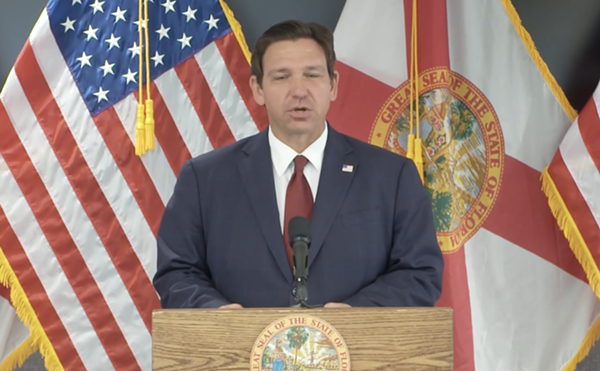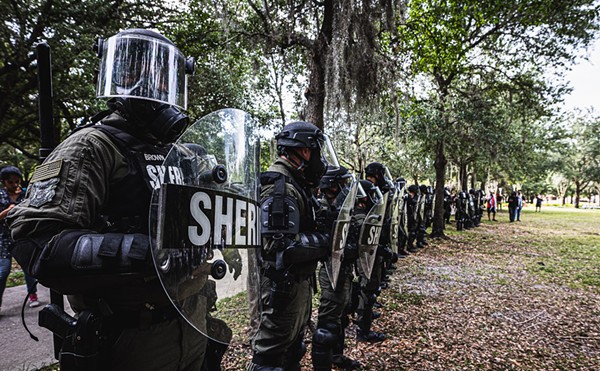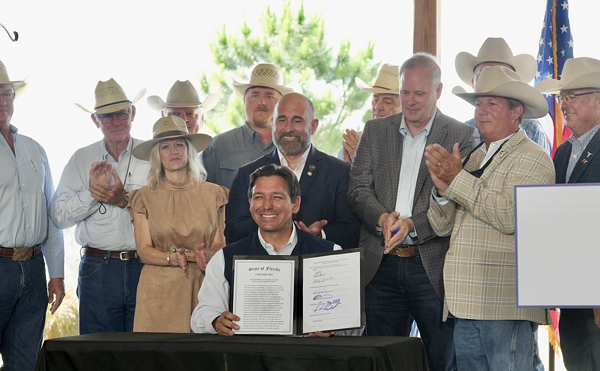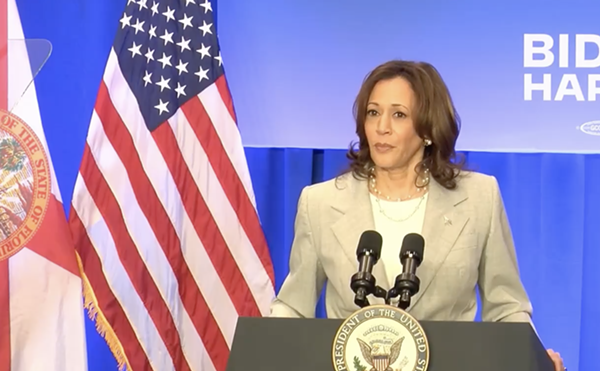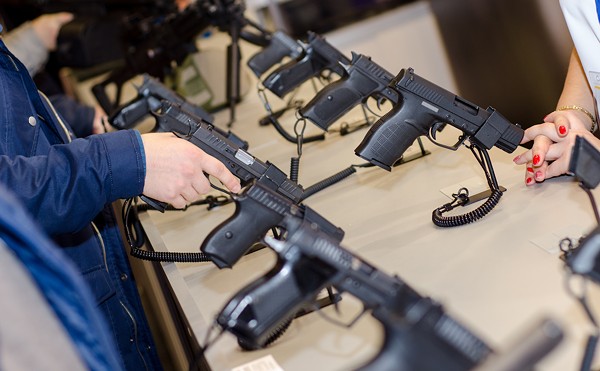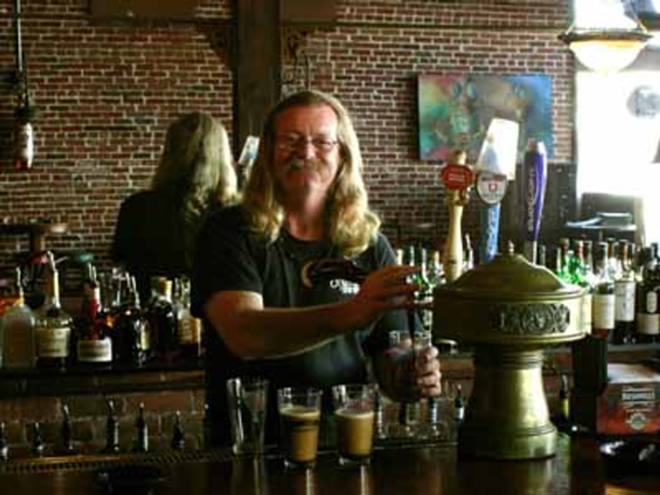
Last Saturday night, a disappointingly small crowd estimated to be no more than 15,000 journeyed to 7th Avenue in Ybor City to celebrate Guavaween, on what historically has been one of the biggest financial paydays of the year for the entertainment district.
Observers attributed the relatively sparse attendance to the decision earlier this year to ban motorized floats, which apparently persuaded most of the krewes associated with those floats to stay away from the festivities. The ticket price ($17, the highest ever) and the fact that the big night took place on Halloween may also have played a role.
Though the float policy was changed in part to bring the event back to its more grassroots origins (and to save thousands of dollars in renting metal barriers on 7th Avenue), local organizers will undoubtedly debate the wisdom of that decision in the coming weeks.
Those discussions could reverberate into a larger debate on the state of the historic district in late 2009. Some area merchants will tell you there's never been a better time to do business in the district than right now. Others worry that the city isn't doing enough to bring in new residents and developers. But all agree that there's a story to tell about Ybor that not enough people are hearing — that the district's unique history and urban livability are realities that still get overwhelmed by more pervasive narratives, some of which aren't even accurate anymore.
Perception vs. Reality
Take, for instance, the crime rate. Since Tampa Mayor Pam Iorio and former Police Chief Stephen Hogue (who just recently retired) took over in 2003, crime overall in the district is down an astronomical 70 percent.
But Ybor's image still suffers from memories of club-related violence in 2007. In May, a fight inside Club Empire ended with one man fatally shot and another charged with murder; a Tampa Police Department report issued to the City Council at the same time included accounts of Club Fuel security guards allegedly robbing and battering patrons. In August, 2007,a shooting took place along Eighth Avenue behind Empire, causing neighborhood activists to call (for the second time) for the closing of both Empire and Club Fuel.
Alan Kahana owns the Castle nightclub and other properties in the area. He attributes some of the lawlessness that was a feature of the district until recently to the "misplaced understanding that we were going to become the next New Orleans in the late 1980s, when the City Council wasn't sensitive to what it took to be a tourist destination."
He also points to the adverse effects of closing off 7th Avenue to vehicular traffic on weekend nights in the '90s. "They didn't think of the unintended consequences of doing so," Kahana says, "which was that we provided a street party for the lowest common denominator."
But in 2005, Mayor Iorio re-opened the avenue to vehicles on weekends, a move that both Boom and Kahana strongly supported. And some of the rowdiest establishments in the district, such as Club Fuel, have moved out.
Tampa Police Captain Craig Roberts says that there are still incidents at some of the clubs, "especially on Saturday nights around 3 a.m. when everyone piles out to the streets. That's when fights start happening."
But he says the problems aren't as acute as in recent years, when the TPD would conduct regular reconnaissance helicopter flights around 3 a.m. on Friday and Saturday mornings.
Despite the advances in the neighborhood, though, some negative perceptions remain. And if you talk to anyone closely affiliated with the district, you will hear that it's the fault of local mainstream media — particularly TV stations.
Patrick Manteiga is the editor and publisher of La Gaceta, the tri-lingual weekly Ybor newspaper. He says there needs to be some serious communications with media outlets about the way they report stories "in Ybor."
"The media likes to tag any negative incident near the area as happening in Ybor. But if there's a problem on Bay-To-Bay, you don't hear them saying, 'Here in South Tampa, another crime has been committed.'"
Yet Manteiga says when he reads something about IKEA in the Tampa Tribune, it's referred to as being located in downtown Tampa. (IKEA is on Adamo Drive, just a few blocks south of 7th Avenue, and officially considered part of Ybor.)
Neighborhood activists were so incensed about such coverage that last year Tony LaColla, president of the Historic Ybor Neighborhood Civic Association, issued a press release to local media outlets informing them of the exact boundaries of Ybor City (Nebraska on the west, 26th Street to the east, I-4 north and Adamo Drive south), and asking them to stop reporting on crimes that take place outside the district and saying that they occurred in Ybor.
The unrelenting focus on crime isn't enhanced by the fact that the Hillsborough County Sheriff's Office Operations Center is located on 8th Avenue in the heart of the district.


